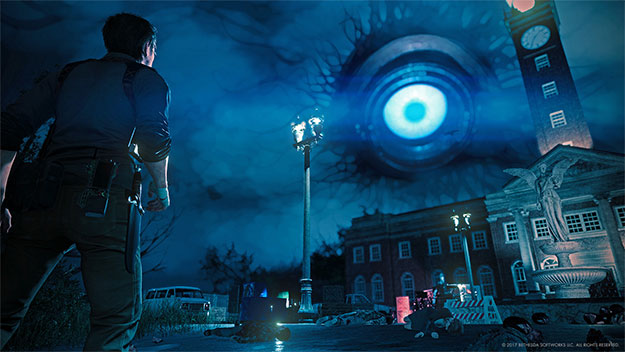Update: Bethesda Threatens To Sue Individual Consumers Over Secondhand Game Sales

It appears that Bethesda Softworks is trying to sue the practice of used of game sales right out of existence by leaning on a legal loophole. We do not know if that is actually the case, but those are the optics, anyway, after the publisher threatened legal action against an Amazon Marketplace seller for trying to sell a still sealed, albeit second-hand copy of The Evil Within 2.
That seller is Ryan Hupp, a gamer who lives in Philadelphia, Pennsylvania. As Hupp explained to Polygon, Hupp purchased The Evil Within 2 for the PlayStation 4 in anticipation of buying the console, but later decided he would rather spend his money on PC gaming upgrades. So, he never bought a PS4, and as most people in his situation would do, he tried to sell The Evil Within 2.
The game had never been opened, let alone played, and was still sealed in its original shrink wrap. Nevertheless, Bethesda, through its legal firm Vorys, sent a threatening letter to Hupp demanding that he take down the item from Amazon or face legal action.
“Unless you remove all Bethesda products, from your storefront, stop selling any and all Bethesda products immediately and identify all sources of Bethesda products you are selling, we intend to file a lawsuit against you,” the letter stated.
Bethesda's legal firm also made clear that it would seek "disgorgement of profits, compensatory damages, attorneys’ fees and investigative and other costs." For an individual seller who is just trying to recoup some of the money he spent on a game he is unable to play, that is pretty intimidating, and so he complied.
Here is the thing though, selling used games is not illegal. It is protected under what is called the First Sale Doctrine, just the same as selling used books and DVDs. As long as the copyrighted material has not been significantly changed and is not a copy (liked a burned DVD, for example), it can legally be sold. GameStop has made a business out of this.
"The first sale doctrine, codified at 17 U.S.C. § 109, provides that an individual who knowingly purchases a copy of a copyrighted work from the copyright holder receives the right to sell, display or otherwise dispose of that particular copy, notwithstanding the interests of the copyright owner," the First Sale Doctrine states.
Bethesda's way of trying to get around appears to be the lack of a transferable warranty. In the letter sent to Hupp, Vorys argues that Hupp's sale falls outside the confines of the First Sale Doctrine because without a transferable warranty, it is "materially different from genuine products" sold through official channels.
We are not a law firm, but it is hard to imagine the argument standing up in court, at least in this specific case and similar ones involving individual sellers (if in fact everything went down as Hupp claims). It hardly matters until someone has the wherewithal to defend against it though. Otherwise, the same argument could applied to virtually all used game sales, ending the practice entirely. That said, we don’t know Bethesda’s side of the story, so there could be more to this.
Updated 8/12/2018
Our previous title incorrectly listed the game as used, when it was in fact new and sealed, but not coming from an “authorized” retailer.
Updated 8/12/2018
Our previous title incorrectly listed the game as used, when it was in fact new and sealed, but not coming from an “authorized” retailer.

